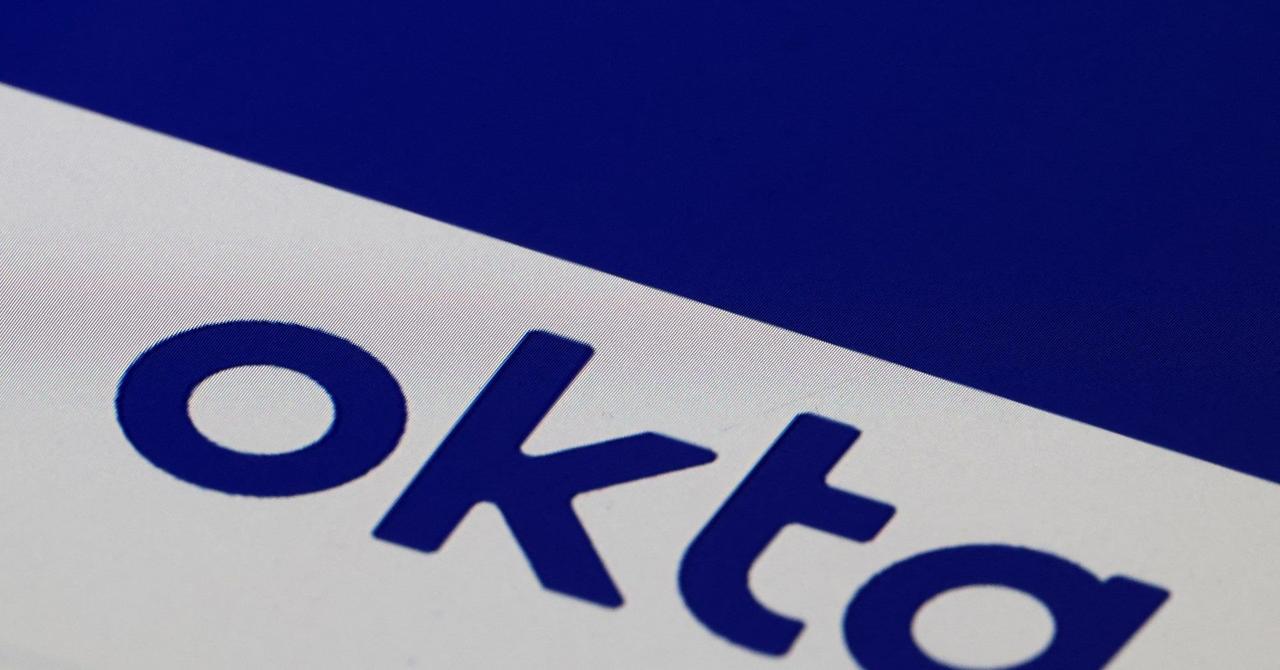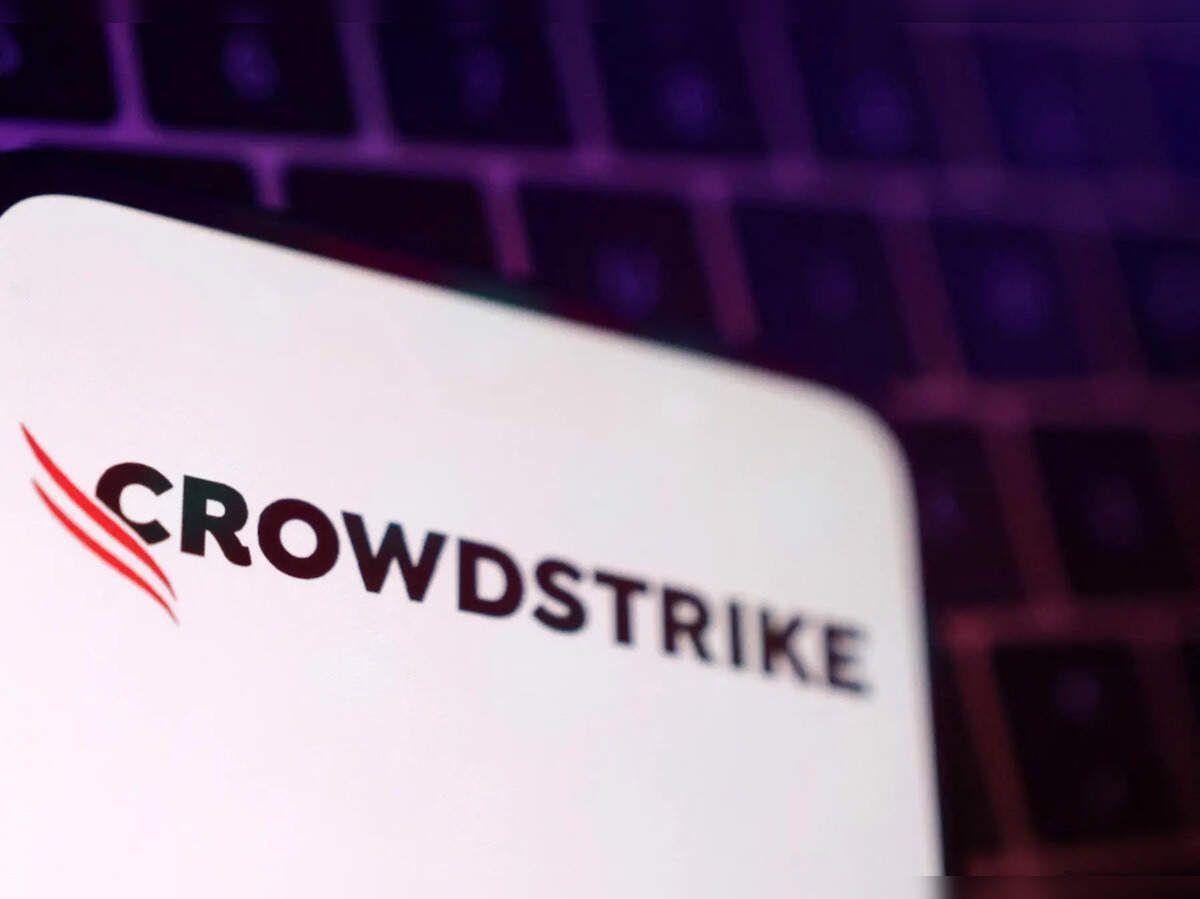Okta Raises Annual Forecasts Amid Surging Demand for AI-Enhanced Cybersecurity Tools
4 Sources
4 Sources
[1]
Okta raises annual forecasts on surging cybersecurity tools demand
Aug 26 (Reuters) - Cybersecurity company Okta (OKTA.O), opens new tab raised annual revenue and profit forecasts on Tuesday, betting on growing demand for its identity verification tools as enterprises strengthen defenses against artificial intelligence-powered attacks. Shares of the San Francisco, California-based company rose nearly 7% in extended trading. Hackers often exploit client identities to steal critical business data, triggering the demand for tools from firms such as Okta that simplify security deployments, support compliance needs and enhance user experience. "Overall, security and securing identity remain a budget imperative for companies. With the increase of threat actor activity ... companies are continuing to invest in securing identity as a core requirement for their businesses," Okta Chief Operating Officer Eric Kelleher told Reuters. In the second quarter, Kelleher added, "Five of our top ten deals were in the public sector. Our largest deal for the quarter was a group within the Department of Defense." Okta automates user access to applications and resources through products such as single sign-on (SSO) and uses AI to monitor and respond to risks in real time. The company raised its fiscal 2026 revenue forecast to a range of $2.88 billion to $2.89 billion, up from its prior expectations of $2.85 billion to $2.86 billion. Okta also lifted its annual adjusted profit per share forecast to $3.33 to $3.38, compared with earlier projections of $3.23 to $3.28. For the third quarter, the company expects revenue between $728 million and $730 million, above analysts' average estimate of $722.9 million, according to data compiled by LSEG. The company's forecast for quarterly adjusted earnings per share of 74 cents to 75 cents aligned with analysts' expectations of 75 cents. In the second quarter ended July 31, Okta's revenue rose 13% to $728 million beating estimates of $711.8 million. The company's quarterly adjusted EPS of 91 cents also exceeded estimates of 84 cents. Reporting by Jaspreet Singh in Bengaluru; Editing by Mohammed Safi Shamsi Our Standards: The Thomson Reuters Trust Principles., opens new tab
[2]
Okta earnings beat expectations as company removes macro caution, bets big on AI security market
Okta reported stronger-than-expected second quarter results on Monday, with the identity management company posting 13% revenue growth while removing previous guidance around macro-economic and federal spending concerns. The results come as Chief Executive Officer Todd McKinnon seeks to position the company to take advantage of what he sees as a looming identity security crisis driven by the proliferation of Artificial Intelligence (AI) agents across enterprise environments. The San Francisco-based vendor reported total revenue of $728 million for the quarter ended July 31, up from $646 million in the same period last year. Subscription revenue, which makes up the bulk of Okta's business, grew 12% year-over-year to $711 million. Current remaining performance obligations (cRPO), a key forward-looking metric, increased 13% to $2.265 billion. More significantly for investors, Okta's financial outlook has brightened considerably. The company raised its full-year revenue guidance to a range of $2.875 billion to $2.885 billion, representing 10% to 11% growth. Free cash flow margin is expected to reach approximately 28% for the full year, up from previous projections. McKinnon says: We are pleased to report solid Q2 results with continued strength with large customers, Auth0, new products, the public sector and cash flow. We are seeing encouraging signals from our newly specialized go-to-market teams, and we're excited to build on this progress as we enter the second half of the year. Perhaps most telling was Chief Financial Officer Brett Tighe's decision to remove what he called "conservatism" from the company's business outlook regarding macro-economic uncertainty and federal spending patterns. Last quarter, Okta had built extra caution into its projections amid concerns about government budget constraints and broader economic headwinds. Tighe explains: I'm pleased to say that neither materialized, and we're removing them from our outlook for the remainder of the fiscal year. The company had been particularly cautious about its federal business following widespread government layoffs and speculation about dramatic policy changes, but those fears proved largely unfounded. The federal sector actually emerged as a bright spot, with five of Okta's top 10 deals in the quarter coming from US public sector customers, including the quarter's largest deal with a Department of Defense agency. That particular engagement involved replacing an aging legacy system with Okta Customer Identity as part of a modernization effort to ensure compliance with federal cybersecurity and Zero Trust mandates. While the financial results provided reassurance about Okta's near-term trajectory, McKinnon spent considerable time outlining the company's strategy for what he described as an "exciting and rapidly changing environment" driven by AI adoption. The Chief Executive Officer argued that every organization will soon need what Okta calls an "identity security fabric" - an architecture capable of securing not just human identities, but also AI agents and other non-human identities. McKinnon explains: With our Auth0 platform, we're enabling developers to build agents that are secure by design and identity security fabric-ready from day one. The company has rebranded its generative AI authentication product as "Auth0 for AI Agents," which delivers user authentication for AI workflows, secure credential management, and authorization controls that allow AI agents to access only authorized data. Central to this strategy is Cross App Access, a new open standard that Okta has developed to help control what AI agents can access across different applications and systems. McKinnon notes that the standard has already attracted interest from major technology partners including AWS, Box, and Zoom. The CEO says: Cross App Access allows for support of AI agents within the identity security fabric and the flexibility to safely connect to other technologies. The standard addresses a fundamental challenge as organizations deploy multiple AI agents that need to interact with numerous applications and data sources while maintaining appropriate security controls. Okta also announced its intention to acquire Axiom Security, a privileged access management vendor focused on eliminating standing privileges and securing critical infrastructure. The deal, expected to close later in the current quarter, reflects Okta's broader push to build comprehensive identity security capabilities rather than relying on point solutions. McKinnon explains: The team at Axiom built complementary technology that helps organizations eliminate standing privileges and secure critical infrastructure, including key features for securing both human and non-human identities. Once integrated, the acquisition should enhance Okta Privileged Access with capabilities for just-in-time access and better support for database connections. The acquisition fits within Okta's strategy of recruiting what McKinnon described as "the best identity people in the world" while expanding the technical capabilities of its privileged access management offerings. The Axiom team brings deep expertise in securing infrastructure connections, particularly to databases, that McKinnon characterized as "world-class." Behind the improved financial performance lies a reorganization of Okta's go-to-market approach that began at the start of the fiscal year. The company specialized its sales teams to focus on specific platforms - Okta's workforce identity solutions versus Auth0's customer identity offerings - rather than trying to sell across the entire portfolio. Chief Operating Officer Eric Kelleher reports that the specialization effort is yielding early positive results, including what he described as "record pipeline generation" in the second quarter. The approach builds on previous successful specializations, including dedicated teams for the US small and medium business market and public sector, both of which have demonstrated improved performance over time. Tighe adds: We generated an all-time high for pipe in Q2. That's partly attributed to the fact that we now have people specializing in our buyers, in our buyer personas. So we have people specialized in developer buyers and people specializing in IT and security buyers. The specialized approach appears to be addressing a practical challenge: ensuring sales representatives can effectively articulate the value of Okta's expanded product portfolio. McKinnon cited an example of a federal agency customer that had used Okta for years but only viewed it as a multi-factor authentication solution, unaware of the company's governance, threat protection, and other security capabilities. Okta's quarterly results reflect a company emerging from a period of uncertainty with both improved financial fundamentals and a renewed strategic vision for the AI era. The removal of macro-economic caution from guidance suggests management confidence in the underlying business trajectory, while the federal sector strength demonstrates the mission-critical nature of identity security infrastructure. The AI security positioning is particularly astute timing. While most organizations are still experimenting with AI agents, McKinnon's argument that identity management will become exponentially more complex as agents proliferate across enterprise environments is compelling. However, execution remains the critical variable. The specialized sales approach shows early promise, but translating that into sustained revenue growth requires consistent performance across diverse markets and customer segments. More importantly, the AI security opportunity depends on enterprise adoption patterns that remain highly uncertain. For now, though, Okta's combination of solid financial performance, improved market outlook, and strategic positioning around AI security provides a strong narrative for investors increasingly focused on how enterprise software companies are participating in AI investments.
[3]
Okta Posts 13% Revenue Gain in Q2 | The Motley Fool
Okta (OKTA 4.31%), an identity and access management software company, reported fiscal 2026 second-quarter results on Aug. 26, 2025, that showed robust profitability and cash flow. It posted revenue of $728 million, which was up 13% year over year. Adjusted earnings per share (EPS) climbed to $0.91 versus the year-ago quarter's $0.72, while free cash flow soared to $162 million, up over 100% year over year. On the downside, guidance for the upcoming quarter and fiscal year signals management's heightened caution. The period showed disciplined cost control and margin improvement but continued a trend of slowing topline growth, with sequential bookings and current remaining performance obligations (cRPO) growth showing signs of plateauing. Source: Okta. Note: The fiscal 2026 second quarter ended July 31, 2025. Okta provides cloud-based identity and access management software. Its technology allows organizations to control secure logins, user identities, and access privileges across both internal and external applications. This is especially important as more businesses move to cloud computing and remote work, making security and scalability essential. In recent years, Okta's main areas of focus have been platform reliability, security certifications, and innovation in products related to identity management and threat protection. Key factors for its success include continuous investment in research and development, as shown by steady GAAP R&D spending of $160 million, a growing customer base in both enterprise and public sector segments, and an extensive network of over 7,000 integrations. Okta leverages its "land-and-expand" sales model -- adding new customers and then increasing revenue from them over time through new products and services. Profitability stood out, with operating income rising to $202 million, an increase of 36.5% compared to Q2 FY2025. Adjusted operating margin climbed five percentage points to 28%, reflecting stronger cost discipline, while adjusted net income reached $169 million. Free cash flow margin expanded to 22%, up 10 percentage points year over year. The gains were underpinned by flat R&D expenses and only modest growth in sales and marketing costs, even as revenue grew 13% year over year. The revenue jump was driven primarily by subscription-based products. Subscription revenue has been Okta's main growth engine, totaling $711 million, up 12%. Professional services and other revenue, at $17 million, was a smaller but faster-growing contributor (up 21% compared to Q2 FY2025). The period saw accounts receivable decline, which signals stronger cash collections. However, growth in key forward metrics, such as current remaining performance obligations (cRPO, which measures committed revenue to be recognized over the next 12 months), plateaued, up only 1.7% compared to Q1 FY2026 and 13% year over year. From a product perspective, Okta's portfolio includes user authentication platforms, multi-factor authentication apps, and developer tools for building secure sign-in experiences (highlighted by the Auth0 platform). Management noted continued adoption of new offerings for identity governance, privileged access management, and automated threat detection. Okta also continues to invest in products that use artificial intelligence (AI), such as its Auth for GenAI, aiming to support organizations as they integrate AI-powered tools into their operations. The company stated, "Our solid Q2 results are highlighted by continued strength in new product adoption, the public sector, Auth0, and cash flow." Okta's customer mix includes large corporations, mid-sized organizations, and public sector entities. While customer count and segment mix were not newly disclosed this quarter, previous disclosures listed over 19,650 customers with more than 4,800 spending at least $100,000 per year. Okta continues to win government business, supported by federal certifications like FedRAMP and IL4, and emphasized momentum in the public sector and large enterprise deals. Historically, International markets accounted for over 21% of total revenue in FY2025, though the company did not break this out in detail. Looking ahead, management guided for revenue of $728 million to $730 million, which translates to growth of 9%-10% for FY2026, and reflects ongoing caution. Management said back on the first quarter earnings conference call, "There is definitely some prudence around the federal vertical, right, although it's not a huge part of our business. You guys all know it does renew itself every year because of the one-year contract mandates that the U.S. federal government has. So that would be a kind of like a subset of the total macro, but in general, it's across the board. If you've heard us talk about over the last couple of years about the headwinds that we faced in terms of NRR, I don't think that those headwinds would be any different than what we would expect to see if the macro did turn negative as we go through the full fiscal year." Current remaining performance obligations are forecast to grow 10% year over year, further reinforcing the company's expectation for the coming year. Adjusted operating income is expected to dip slightly from this quarter's high, coming in at $160 million to $162 million, while adjusted free cash flow margin is targeted at roughly 21%. For the full fiscal year 2026, Okta raised its guidance slightly, now targeting revenue of $2.885 billion at the high end, reflecting 10%-11% growth for FY2026. Management made it clear that guidance for growth was delivered "prudently" due to changes in go-to-market structure and lingering uncertainty from customer spending plans, especially among large government clients. Investors should closely watch the company's performance for indicators of re-acceleration.
[4]
Okta raises annual forecasts on surging cybersecurity tools demand
(Reuters) -Cybersecurity company Okta raised annual revenue and profit forecasts on Tuesday, betting on growing demand for its identity verification tools as enterprises strengthen defenses against artificial intelligence-powered attacks. Shares of the San Francisco, California-based company rose nearly 7% in extended trading. Hackers often exploit client identities to steal critical business data, triggering the demand for tools from firms such as Okta that simplify security deployments, support compliance needs and enhance user experience. "Overall, security and securing identity remain a budget imperative for companies. With the increase of threat actor activity ... companies are continuing to invest in securing identity as a core requirement for their businesses," Okta Chief Operating Officer Eric Kelleher told Reuters. In the second quarter, Kelleher added, "Five of our top ten deals were in the public sector. Our largest deal for the quarter was a group within the Department of Defense." Okta automates user access to applications and resources through products such as single sign-on (SSO) and uses AI to monitor and respond to risks in real time. The company raised its fiscal 2026 revenue forecast to a range of $2.88 billion to $2.89 billion, up from its prior expectations of $2.85 billion to $2.86 billion. Okta also lifted its annual adjusted profit per share forecast to $3.33 to $3.38, compared with earlier projections of $3.23 to $3.28. For the third quarter, the company expects revenue between $728 million and $730 million, above analysts' average estimate of $722.9 million, according to data compiled by LSEG. The company's forecast for quarterly adjusted earnings per share of 74 cents to 75 cents aligned with analysts' expectations of 75 cents. In the second quarter ended July 31, Okta's revenue rose 13% to $728 million beating estimates of $711.8 million. The company's quarterly adjusted EPS of 91 cents also exceeded estimates of 84 cents. (Reporting by Jaspreet Singh in Bengaluru; Editing by Mohammed Safi Shamsi)
Share
Share
Copy Link
Okta, a leading cybersecurity company, has increased its annual revenue and profit forecasts due to growing demand for its identity verification tools, particularly in response to AI-powered security threats.
Okta's Financial Performance Exceeds Expectations
Okta, a leading cybersecurity company specializing in identity and access management, has reported strong financial results for the second quarter of fiscal 2026, ending July 31, 2025. The company's revenue rose 13% year-over-year to $728 million, surpassing analysts' estimates of $711.8 million
1
4
. This growth was primarily driven by subscription-based products, which accounted for $711 million of the total revenue3
.
Source: Reuters
The company's profitability showed significant improvement, with adjusted earnings per share (EPS) reaching $0.91, exceeding both the previous year's $0.72 and analysts' expectations of $0.84
1
3
. Free cash flow saw a remarkable increase, more than doubling to $162 million compared to the same period last year3
.Raised Forecasts and Market Optimism
In response to the strong performance and growing demand for cybersecurity tools, Okta has raised its annual forecasts. The company now projects fiscal 2026 revenue to be between $2.88 billion and $2.89 billion, up from earlier estimates of $2.85 billion to $2.86 billion
1
. Additionally, Okta has increased its annual adjusted profit per share forecast to a range of $3.33 to $3.381
.The market reacted positively to these results, with Okta's shares rising nearly 7% in extended trading
1
. The company's improved outlook is attributed to the removal of previous conservatism regarding macro-economic uncertainty and federal spending patterns2
.AI-Driven Security Threats and Okta's Strategic Response
Okta's growth is largely driven by the increasing need for robust identity verification tools as enterprises bolster their defenses against AI-powered attacks. CEO Todd McKinnon has positioned the company to address what he sees as a looming identity security crisis caused by the proliferation of AI agents in enterprise environments
2
.
Source: diginomica
To capitalize on this trend, Okta has introduced new products and standards:
-
Auth0 for AI Agents: A rebranded generative AI authentication product that provides user authentication for AI workflows, secure credential management, and authorization controls
2
. -
Cross App Access: An open standard developed by Okta to control AI agents' access across different applications and systems, attracting interest from major tech partners like AWS, Box, and Zoom
2
.
Expansion in Public Sector and Large Enterprise Deals
Okta reported significant success in the public sector, with five of its top ten deals in the quarter coming from U.S. public sector customers. The largest deal of the quarter was with a Department of Defense agency, involving the replacement of a legacy system with Okta Customer Identity to ensure compliance with federal cybersecurity and Zero Trust mandates
2
4
.Related Stories
Strategic Acquisition and Product Development
To further enhance its capabilities, Okta announced its intention to acquire Axiom Security, a privileged access management vendor. This acquisition is expected to strengthen Okta's Privileged Access offerings with features for just-in-time access and improved support for database connections
2
.Challenges and Future Outlook

Source: Motley Fool
Despite the positive results, Okta faces some challenges. The company's revenue growth rate has been slowing, and there are signs of plateauing in sequential bookings and current remaining performance obligations (cRPO) growth
3
. Management has maintained a cautious stance in its guidance, citing ongoing changes in go-to-market structure and uncertainty in customer spending plans, particularly among large government clients3
.As Okta continues to navigate the evolving cybersecurity landscape, investors and industry observers will be closely watching for indicators of re-acceleration and the company's ability to capitalize on the growing demand for AI-enhanced security solutions.
References
Summarized by
Navi
[2]
[3]
[4]
Related Stories
Okta Enhances Workforce Identity Cloud with AI-Powered Security and Governance Tools
17 Oct 2024•Technology

Okta plans 50% workforce expansion in India by 2026 to advance AI security operations
11 Dec 2025•Business and Economy

CrowdStrike sees upbeat quarterly revenue as AI adoption drives endpoint security demand
03 Dec 2025•Business and Economy

Recent Highlights
1
Pentagon threatens Anthropic with Defense Production Act over AI military use restrictions
Policy and Regulation

2
Google Gemini 3.1 Pro doubles reasoning score, beats rivals in key AI benchmarks
Technology

3
Anthropic accuses Chinese AI labs of stealing Claude through 24,000 fake accounts
Policy and Regulation





